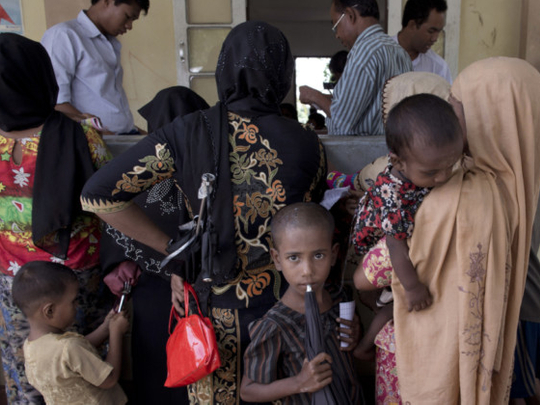
According to the United Nations, the Rohingya Muslims are one of the most mistreated people in the world. They have been systematically persecuted for decades despite being rooted in the region for centuries. And that due to ethnic, religious and cultural differences with the mainstream Tibeto-Burman people. However, the Burmese government calls the Rohingya Muslims as ‘Bengali’ claiming that they are illegal immigrants from Bangladesh.
Because of the large scale systematic persecution through ethnic cleansing and genocidal action against them, approximately about 1.5 million Rohingya Muslims have had to flee their homeland since the Burmese independence in 1948. These unfortunate, uprooted and stateless people are found in Bangladesh, Saudi Arabia, Pakistan, Malaysia, United Arab Emirates, Thailand, Indonesia, India, Australia and some of them are also found in various Western countries. More than one million of the Rohingya ethnic minority are inside the country now, however, the majority lives in the Rakhine State (Arakan), which is the western part of Burma (Myanmar). Since the violence in 2012, more than 140,000 Rohingya people are trapped in dirty and crowded camps as Internally Displaced Peoples (IDPs) in the central part of the Rakhine State. These people are facing persecution and a wide range of human rights violations at the hands of the authorities and the Buddhist Arakanese community. These people have been kept in isolation and are not allowed to leave the camps.
Rohingya students are not allowed to attend university, nor are the children of these Rohingya people accepted to enrol in schools, though everyone has the right to education as per United Nations. These people have no access to government hospitals, except some limited medical treatment through mobile clinics in the camps. As a result, Rohingyas have to solely depend on humanitarian aid, having very limited access to food, water or medicines, which is causing their children severe malnutrition, eventually leading to death.
After a 10-day visit to the area, Yanghee Lee, the UN Special Rapporteur on Human Rights in Myanmar (Burma), summed up her findings. “The situation is deplorable. By virtue of their legal status, the Muslim community has faced and continues to face systematic discrimination, which include restrictions in the freedom of movement, restrictions in access to land, food, water, education and health care, and restrictions on marriages and birth registration.”
- The reader is a Burmese managing director based in Sharjah







